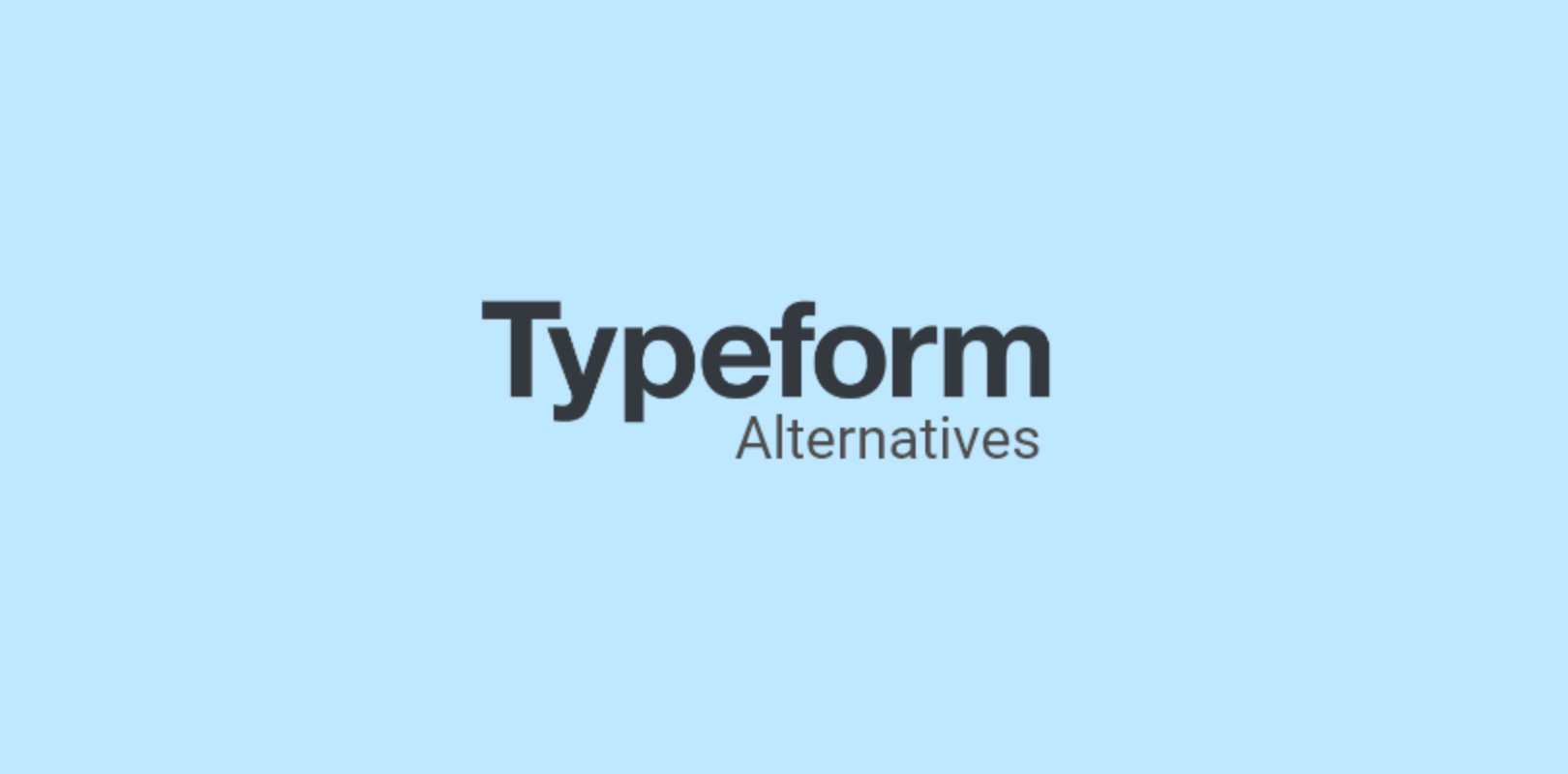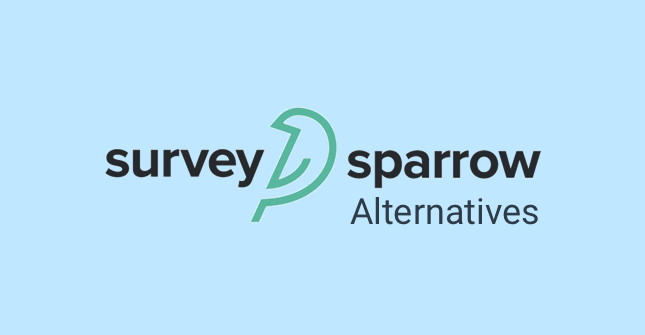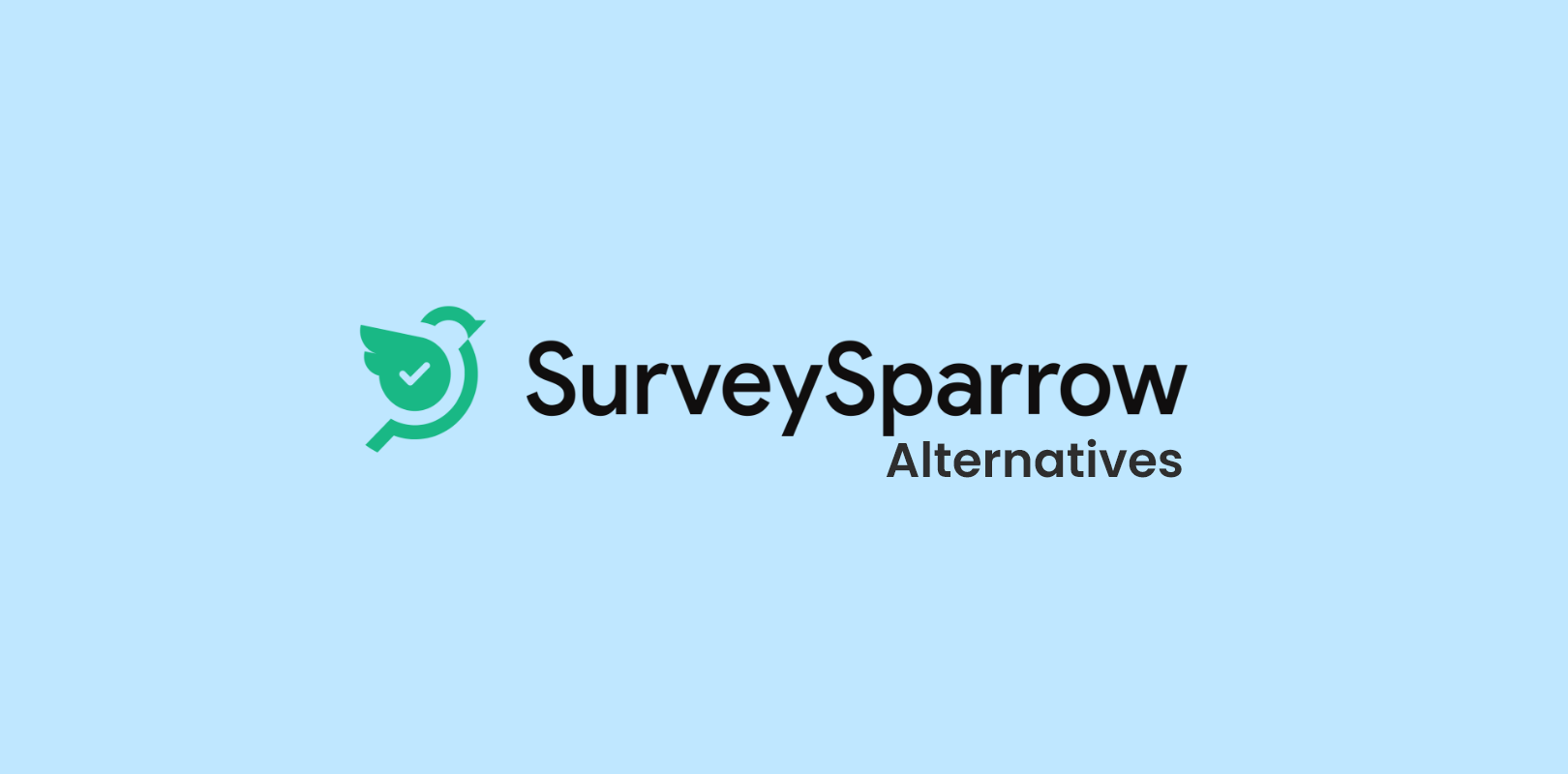As a robust, reliable tool with multiple functionalities, Shout undoubtedly stands among the top choices for customer experience research.
However, it has a standardized set of features that may not necessarily cater to the unique needs of every user.
Additionally, Shout’s pricing is not within everyone’s budget. As businesses and individuals seek cost-effective options, the need to explore Shout alternatives with similar functionalities at a more affordable price arises.
The market is inundated with tools that offer what you are looking for, but sifting through so many to choose the right fit is a mammoth task.
This is why I have meticulously researched and assessed each tool’s features, functionality, and performance to bring you an informed selection.
Let’s begin.
List of the Top 7 Shout Alternatives
In this listicle, I’ll be counting down the top 7 Shout alternatives for 2024, each chosen based on their unique features, price, and possible cons.
1. Qualaroo: Best for real-time user feedback
Qualaroo is a well-established and reliable survey tool that I have had the opportunity to work with for a long time. Here’s what I discovered.
Based on my experience and the information on their website, this Shout alternative is incredibly effective at capturing feedback from visitors in real time and within the context of their actions.
Qualaroo’s proprietary widget, NudgeTM, has been developed specifically to discover customer insights without being intrusive. You can ask the right questions at the right time, understand why customers do what they do, and use the data to grow your business.
The tool can measure customer satisfaction and loyalty using metrics like Net Promoter Score (NPS), Customer Satisfaction Score (CSAT), and Customer Effort Score (CES).
Using Qualaroo helped me improve my website and app experience, boost conversion rates, gather feedback on my products, reduce customer churn, and so much more.
What you’ll like:
- Advanced targeting capabilities to show the right surveys to the right people at the right time
- Versatile survey deployment options, including websites, products, prototypes, and mobile apps
- Accurate sentiment analysis for a better understanding of open-text feedback comments
- Seamless integrations with popular workspace tools like Salesforce, Hootsuite, and Slack for efficient data management
- Exit surveys that uncover insights into potential buyer behavior and boost conversion rates
- Conditional logic to create personalized survey paths
What you may not like:
- The survey templates could have been put into distinct categories for ease of use
- There should be options to export data in different formats
Pricing: Starts at $69/month. Unlimited nudges and responses for 1 domain. 15-day free trial available.
🙂 Watch: How to Collect Customer Feedback
2. SurveyLegend: Best for creating mobile-friendly surveys

(Source: SurveyLegend)
As a user of SurveyLegend, I was always impressed by its ability to create stunning and engaging surveys.
The drag-and-drop editor and wide range of question types make it easy for me to design surveys that suit my needs perfectly.
The real-time data analysis and custom dashboards give me immediate insights into the survey results, allowing me to make data-driven decisions quickly.
I also appreciate the versatility of SurveyLegend, as it enables me to distribute surveys effortlessly through various channels, such as email, social media, and embedded links.
However, the standout feature for me is the ability to collect offline data using the mobile app. This feature has been a lifesaver when conducting surveys in remote locations or areas with poor internet connectivity.
All in all, the tool is a great option for a smooth, efficient, and impactful survey experience.
What you’ll like:
- Advanced analytics and reporting tools for real-time data analysis and insight generation
- Collaboration features allow teams to work together on survey creation and track changes
- Data security and privacy measures, including SSL encryption and GDPR compliance, to ensure data protection
- Supports creating surveys in multiple languages
- You can also duplicate your surveys
What you may not like:
- Limited options when it comes to customizing the design and branding of surveys
- Users may find the UI a bit cluttered
Pricing: Paid plans start at $15/month. Free plan available, which is limited to 3 surveys.
3. Google Forms: Best for simple and easy form creation

(Source: GoogleForms)
Google Forms is a free online survey tool and a reliable Shout alternative that is simple, easy to use, and extremely versatile. Owing to its widespread compatibility, you can create surveys, and gather responses on almost any device with an internet connection.
You can create surveys with a variety of question types, including multiple-choice, short-answer, and more, with just a few clicks.
One of the standout features of Google Forms for me is its seamless integration with Google Sheets, where responses are automatically collected and organized. This makes it incredibly easy to analyze the data and generate visual representations like charts or graphs.
If you’re looking for a simple, reliable survey tool, I’d say Google Forms is an excellent choice. However, it might not be an ideal fit if your surveys require more advanced features than simply collecting basic data.
What you’ll like:
- Templates that offer a variety of prebuilt form designs for different purposes, such as feedback, registration, quiz, order, and more
- Question formats that allow you to choose from different types of questions, such as multiple choice, short answer, checkboxes, linear scale, date, time, and more
- Conditional logic that enables you to show or hide questions based on the responses of the respondents
- Theme customizations that let you change the appearance of your forms by adding images, videos, logos, colors, and fonts
- Reporting and analytics to view responses in Google Sheets as charts, graphs, etc.
What you may not like:
- You will not be able to use the forms offline
- Limited design and customization options
- Can only be shared via a link
Pricing: Free for anyone with a Google account.
4. SurveyMonkey: Best for robust survey and data analysis

Having had extensive experience with SurveyMonkey, I can confidently recommend it as a reliable Shout alternative.
It is versatile and can be used for various survey needs, such as market research, customer satisfaction, employee engagement, and academic surveys.
Despite having quite a vast number of features, SurveyMonkey is really user-friendly. The interface is simple, and you can create surveys quite easily, even if you are new to the tool.
There are a variety of question types, like multiple choice, rating scales, and open-ended questions, allowing you to design surveys that suit your specific requirements.
SurveyMonkey’s analytics section is also impressive, providing real-time results that you can access on the built-in dashboard as well as export as PDF, Excel, or CSV files.
With all these features, SurveyMonkey makes for an amazing tool to gather valuable insights from your target audience and drive your business forward.
What you’ll like:
- Versatile question types, including multiple-choice, rating scales, and open-ended questions
- Extensive library of pre-made templates for quick and convenient survey design
- Real-time analytics providing instant insights on a user-friendly dashboard
- Convenient exporting options for data analysis and reporting in PDF, Excel, or CSV formats
- Robust survey distribution options, including email invitations, social media sharing, and website embedding
- Advanced survey logic and skip patterns for creating personalized and dynamic surveys
What you may not like:
- Some users have reported problems with the SurveyMonkey mobile app, such as crashes and difficulty logging in
- Although SurveyMonkey offers a variety of question types, some advanced or specialized question formats may not be available
Pricing: Starts at $25/user/month. 50,000 responses per year.
Read More: 15 Best SurveyMonkey Alternatives in 2024
5. QuestionPro: Best for advanced survey features

QuestionPro offers a range of features for market research professionals, customer experience management, workforce engagement, and academic research.
The interface is incredibly user-friendly and intuitive, making it easy for users of all levels to create, distribute, and analyze surveys.
It is pretty easy to create and customize your surveys, suiting a wide number of use cases and demographics, mostly due to its extensive library of pre-made templates, advanced survey logic, and multilingual support.
QuestionPro seamlessly integrates with platforms like Salesforce and Microsoft Dynamics, enabling efficient data integration.
Offline surveys are an added perk of this software, enabling data collection even in times of poor connectivity.
Overall, considering the features and pricing module, I’d say it is a versatile Shout alternative that works great for most business models, from small scale to large.
What you’ll like:
- Versatile survey creation with advanced logic, branching, and skip capabilities
- Multilingual support in surveys, allowing users to expand the survey pool
- Robust data analysis for valuable insights
- Seamless data integration with popular platforms like Salesforce and Microsoft Dynamics
- Customized URL, branding, and themes to modify the look and feel of your surveys with your domain themes
- Team collaboration feature to share surveys, reports, data, etc., and assign roles and permissions to your team members
- Real-time data analysis on a dashboard account as charts, graphs, summaries, cross-tabs, filters, and data trends
What you may not like:
- Advanced features cost extra, even with a paid plan
- Limited customization and formatting options
Pricing: Paid plans start at $99 per user per month.
6. Jotform: Best for customizable online forms

This Shout competitor is a versatile and powerful tool that allows you to create and manage customized surveys. I was able to personalize the surveys as per my branding and make them a part of my user interface.
The user-friendly drag-and-drop interface makes it intuitive to use. You can choose from various question types and set logical conditions to tailor your surveys to your specific needs.
Jotform seamlessly integrates with over 100 different apps, including Google Analytics, Mailchimp, and PayPal, streamlining your workflow and automating processes.
The built-in analytics dashboard and visual reports simplify data analysis, providing valuable insights for informed decision-making.
What you’ll like:
- Versatile, tailored survey creation with a drag-and-drop interface, extensive question types, and logical conditions
- Seamless integrations with 100+ popular apps like Google Analytics, PayPal, Adobe, Zoom, Hubspot, and more
- Built-in Forms Analytics feature that offers advanced data analysis to observe trends and visual reports
- Mobile-friendly platform with advanced security measures and automation capabilities
- Surveys can be customized using logos, fonts, and colors to match your brand identity
- SSL data security to weed out spam responses or data leakage
What you won’t like:
- The tool has a steep learning curve and can be daunting to navigate as a beginner
- Some bugs and glitches can cause the app to crash frequently
Pricing: Starts at $34/month.
Read More: 12 Best Jotform Alternatives & Competitors in 2024
7. Typeform: Best for creating surveys using AI
Typeform has earned its place as one of the top survey tools on my list, and it’s easy to see why. Typeform is outstanding in its ability to gather better-quality data by asking the right questions in an interactive, chat-like format. This leads to higher completion rates and more thoughtful answers.
I was also impressed with the option to personalize the appearance of my surveys, making them visually appealing and relevant. This not only improved the user experience but also enhanced the quality of the collected data.
Typeform’s analytical tools were incredibly helpful in analyzing the survey data. They allowed me to uncover hidden trends and patterns that could have easily gone unnoticed.
Impressively, the tool offers you the option to create forms using AI right away, even with the free version. You simply need to enter the type of data you are looking for and the questions you want to use to obtain it – the rest is done automatically with no reforms on the user’s part.
What you’ll like:
- AI-powered surveys that require minimal inputs and manual handling
- Extensive question types and logical conditions for tailored and insightful surveys
- Seamless integrations with 100+ popular apps for enhanced functionality and data integration
- Built-in analytics dashboard and visually appealing reports for convenient data analysis
- Mobile-friendly platform with advanced security measures and automation capabilities for a seamless experience
- Supports multiple ways of survey sharing, whether by sending surveys by email, landing page, or a survey link to anyone interested
What you may not like:
- Lacks extensive integration with third-party tools
- The one-question-at-a-time setup can be a limiting factor in situations where cluster questions are required
Pricing: Paid plans start at $25/month.
Read More: 11 Best Typeform Alternatives to Check-in 2024
Which Shout Alternative Is the Best for You?
Choosing the right survey software can be a daunting task, especially with so many options available. To simplify your decision-making process, I have narrowed down the choices to three exceptional Shout alternatives.
Rest assured, this does not diminish the value of other options; we simply selected the cream of the crop.
Let’s see the top 3 contenders here:
Option A: Qualaroo
Qualaroo can be your ideal Shout alternative due to its extensive features tailored to gauge customer experience as precisely and accurately as possible. Its proprietary feature, Nudge, non-intrusively gains insights into customers’ motivations with short, relevant questions at appropriate intervals.
Plus, Qualaroo’s Sentiment Analysis allows for extracting customer emotions from written feedback, adding an extra layer to the insights gathered from surveys.
Option B: SurveyMonkey
SurveyMonkey is known for its versatility of surveys that span across domains like market research, customer experience, human resources, healthcare, education, etc.
Aided by an incredibly vast arrangement of templates for every survey type it offers, this tool efficiently creates surveys en masse with minimal effort. SurveyMonkey’s ability to integrate with over 100 applications only adds to its efficiency and appeal.
Option C: Typeform
Typeform brings bland surveys to life by incorporating a conversational element into the questionnaire. Aside from changing the format of the question, the tool uses advanced conditional logic to display queries coherently and one by one. You also get the option to create survey forms with AI, even with the free plan. That’s definitely a perk, as you get stunning surveys with minimal effort.
Although we are now down to three options, the best choice is yet to be decided.
And the choice lies entirely with you! These three tools are distinct in their features, each offering a unique set of perks. Depending on your specific requirements, you can choose the one that suits you best.
However, if you ask me, I’d go for Qualaroo. With functionalities that go far beyond just capturing user responses, this tool is a comprehensive, intelligent solution to decode the “why” behind every action of your visitor’s actions with respect to your brand or website.
FREE. All Features. FOREVER!
Try our Forever FREE account with all premium features!






